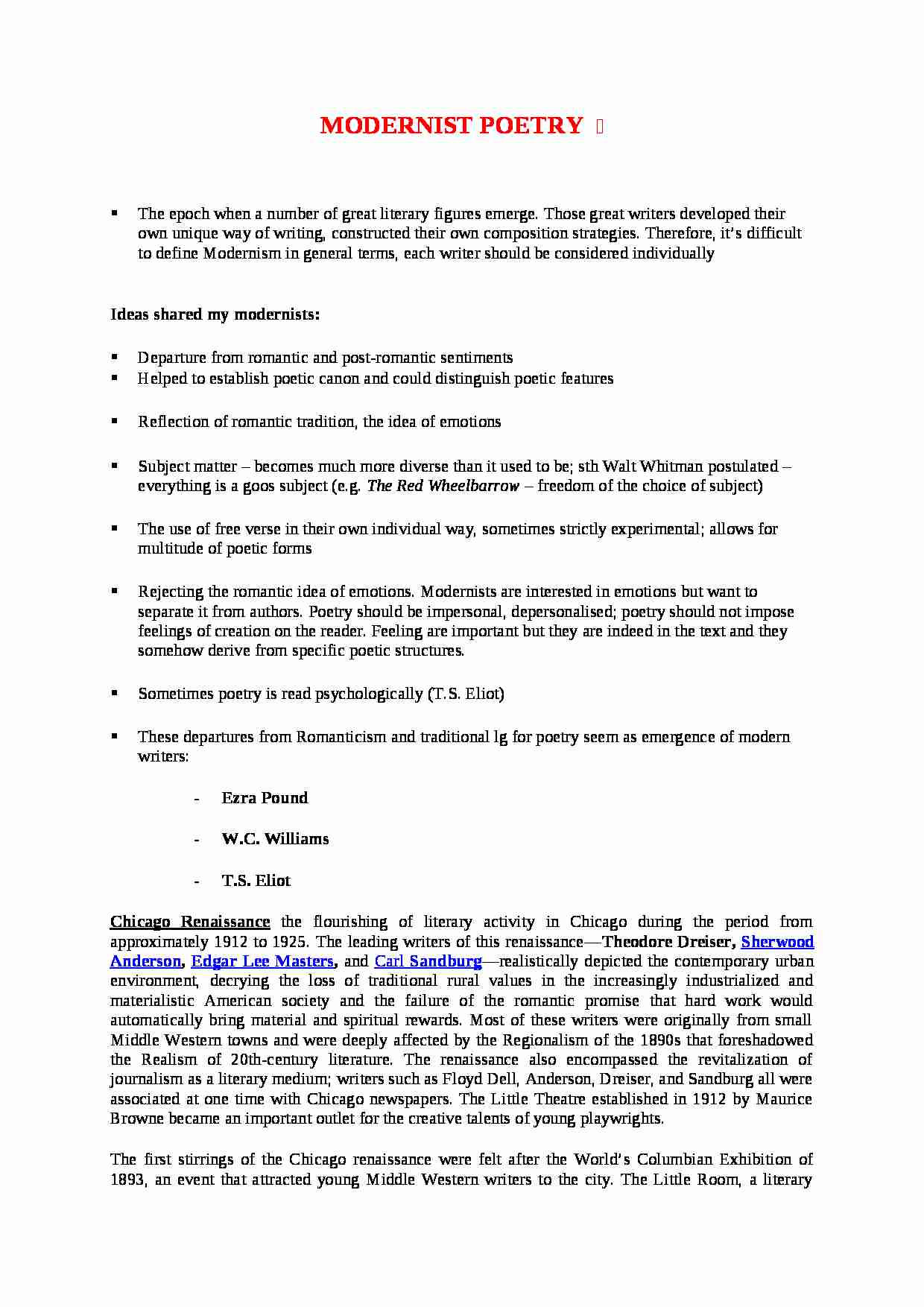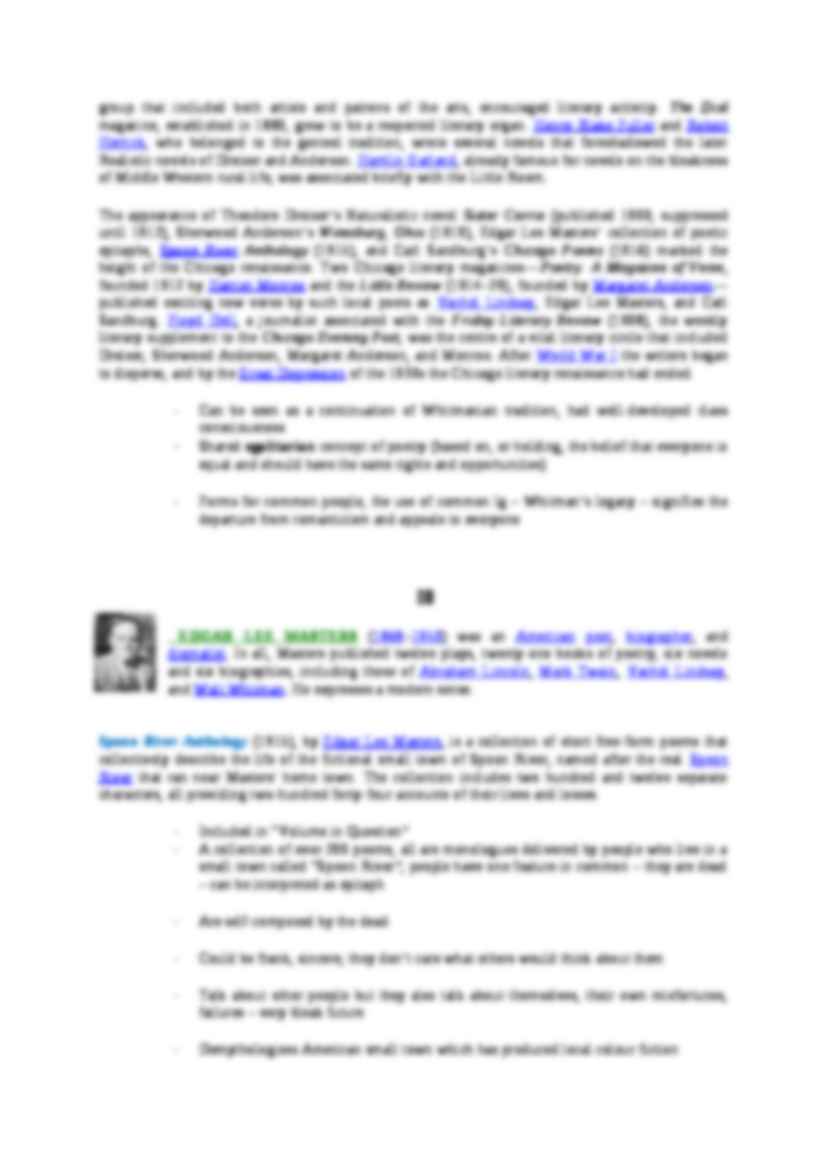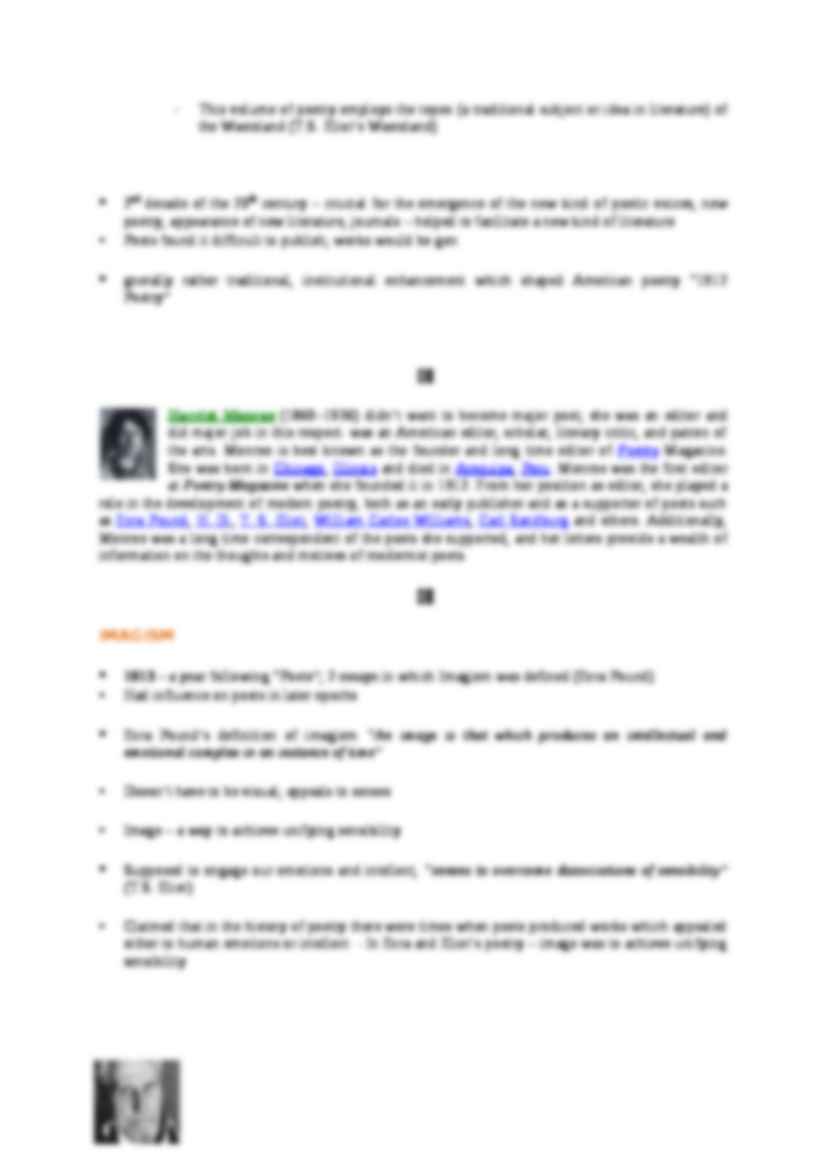To tylko jedna z 6 stron tej notatki. Zaloguj się aby zobaczyć ten dokument.
Zobacz
całą notatkę



MODERNIST POETRY The epoch when a number of great literary figures emerge. Those great writers developed their own unique way of writing, constructed their own composition strategies. Therefore, it's difficult to define Modernism in general terms, each writer should be considered individually
Ideas shared my modernists:
Departure from romantic and post-romantic sentiments
Helped to establish poetic canon and could distinguish poetic features
Reflection of romantic tradition, the idea of emotions
Subject matter - becomes much more diverse than it used to be; sth Walt Whitman postulated - everything is a goos subject (e.g. The Red Wheelbarrow - freedom of the choice of subject)
The use of free verse in their own individual way, sometimes strictly experimental; allows for multitude of poetic forms
Rejecting the romantic idea of emotions. Modernists are interested in emotions but want to separate it from authors. Poetry should be impersonal, depersonalised; poetry should not impose feelings of creation on the reader. Feeling are important but they are indeed in the text and they somehow derive from specific poetic structures.
Sometimes poetry is read psychologically (T.S. Eliot)
These departures from Romanticism and traditional lg for poetry seem as emergence of modern writers:
Ezra Pound
W.C. Williams
T.S. Eliot
Chicago Renaissance the flourishing of literary activity in Chicago during the period from approximately 1912 to 1925. The leading writers of this renaissance—Theodore Dreiser, Sherwood Anderson, Edgar Lee Masters, and Carl Sandburg—realistically depicted the contemporary urban environment, decrying the loss of traditional rural values in the increasingly industrialized and materialistic American society and the failure of the romantic promise that hard work would automatically bring material and spiritual rewards. Most of these writers were originally from small Middle Western towns and were deeply affected by the Regionalism of the 1890s that foreshadowed the Realism of 20th-century literature. The renaissance also encompassed the revitalization of journalism as a literary medium; writers such as Floyd Dell, Anderson, Dreiser, and Sandburg all were associated at one time with Chicago newspapers. The Little Theatre established in 1912 by Maurice Browne became an important outlet for the creative talents of young playwrights.
The first stirrings of the Chicago renaissance were felt after the World's Columbian Exhibition of 1893, an event that attracted young Middle Western writers to the city. The Little Room, a literary group that included both artists and patrons of the arts, encouraged literary activity. The Dial magazine, established in 1880, grew to be a respected literary organ.
(…)
… the real Spoon River that ran near Masters' home town. The collection includes two hundred and twelve separate characters, all providing two-hundred forty-four accounts of their lives and losses.
Included in “Volume in Question”
A collection of over 200 poems; all are monologues delivered by people who live in a small town called “Spoon River”; people have one feature in common - they are dead - can…
… and the situation
Robert Frost (1874-1963) a US poet who won four Pulitzer Prizes. He is best known for his poems about the countryside. From 1912 to 1915 Frost lived in England where he wrote A Boy's Will (1913). He then settled in the US state of New Hampshire and wrote about New England. His books of poetry include A Witness Tree (1942) and In the Clearing (1962). His best-known poems are Mending…
... zobacz całą notatkę






Komentarze użytkowników (0)